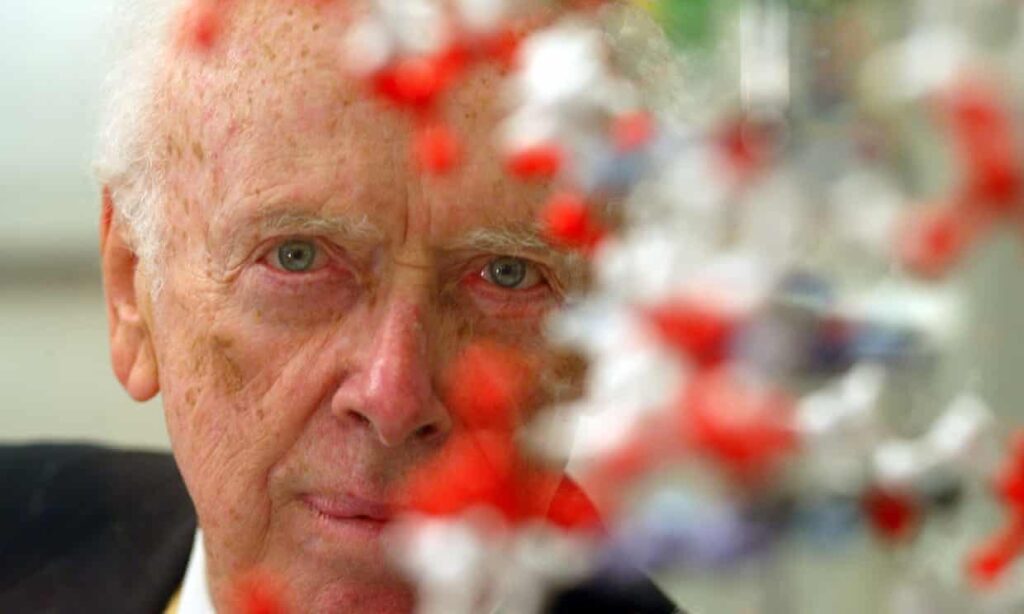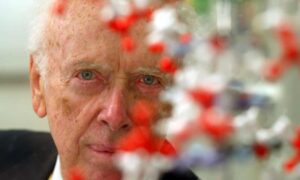
James Watson, the renowned geneticist who co-discovered the structure of DNA, passed away on November 6, 2025, at the age of 97. His groundbreaking work alongside Francis Crick in the early 1950s marked a pivotal moment in the field of molecular biology, fundamentally altering our understanding of genetics and inheritance.
Watson and Crick’s landmark discovery at Cambridge University in 1953 revealed that DNA, or deoxyribonucleic acid, has a double helix structure that holds the key to genetic information. This revelation not only earned them a shared Nobel Prize in 1962 but also sparked a scientific revolution that has since influenced various fields, including biology, medicine, and forensic science.
Their collaboration began in 1951 when Watson, a promising young American scientist, arrived at the Cavendish Laboratory. Crick, a British biophysicist, welcomed him into his research efforts. Despite their differing backgrounds—Watson being a competitive prodigy and Crick an older, more methodical thinker—they formed a productive partnership. Together, they proposed that the DNA molecule consisted of two strands, twisted in a helical shape, capable of replicating itself.
The duo’s findings were immortalized in Watson’s 1968 memoir, The Double Helix, where he detailed the highs and lows of their research journey. The book, while celebrated for its narrative, also drew criticism for its portrayal of colleagues, particularly regarding the contributions of Rosalind Franklin, whose X-ray diffraction images were crucial to their discovery yet received little acknowledgment.
Watson’s career extended beyond the discovery of DNA’s structure. He served as director of the Cold Spring Harbor Laboratory in New York, where he transformed the institution into a leading center for genetic research. Under his leadership, the laboratory became instrumental in tumor virology and produced significant advancements in understanding cancer.
In 1990, Watson took the helm of the ambitious Human Genome Project, which aimed to sequence the entire human genome. This massive undertaking reshaped biological research and paved the way for new fields such as genomics and bioinformatics. By 2003, the project had successfully mapped the genetic blueprint of various organisms, significantly advancing our understanding of genetics.
Throughout his career, Watson’s brilliance was often overshadowed by controversy stemming from his outspoken views. His comments on intelligence and race drew widespread condemnation, culminating in his resignation from Cold Spring Harbor in 2007. Despite his scientific acclaim, his remarks tarnished his legacy, leading to a complicated public image.
In his later years, Watson continued to contribute to the scientific community, although he faced backlash for his views. He generated further controversy in 2019 during a PBS documentary, reiterating previously criticized opinions, resulting in the revocation of his honorary titles at Cold Spring Harbor.
Despite the challenges and controversies, Watson’s contributions to science remain monumental. His work not only earned him international recognition, including an honorary knighthood in 2002, but also laid the groundwork for modern genetics as we know it today. He is survived by his wife, Elizabeth, their sons, Rufus and Duncan, and a grandson.
James Dewey Watson, born April 6, 1928, leaves behind a complex legacy as a pioneering scientist whose work has had a lasting impact on biology and medicine.







